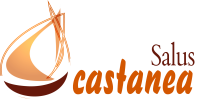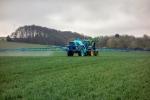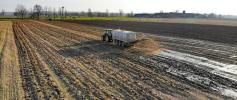OSMAR Operational Group: Effluents highly loaded with fertilizer value
- Type Operational group
- Status In progress
- Execution 2023 -2025
- Assigned Budget 279.355,00 €
- Scope Autonómico
- Autonomous community Andalucía
The development of this GO aims to achieve the following objectives:
- Eliminate the environmental impact of treating wastewater with a high organic matter load. Treatment will mitigate the consequences this type of effluent has on society and the environment, primarily related to the production of odors and contamination of aquifers.
- Obtain more sustainable fertilizers for agriculture, suitable for organic farming, and reducing drainage loss.
- Improve agricultural drainage management through the use of ICT technologies that allow for the measurement of existing nutrient quantities to optimize their application, thereby avoiding excess nutrients and the resulting contamination of water bodies by leachates.
- Improve soil management through organic farming systems that will provide nutrients to the soil while rationally improving its structure.
- Reduce the need for agricultural inputs such as fertilizers by providing nutrients from sustainable raw materials. This will improve crop nutrition while boosting their vigor and, therefore, their response and defense capacity against pests and/or diseases, limiting the use of synthetic products.
The OSMAR Operational Group focuses on the revaluation of organic matter-laden effluents into organic fertilizers for application to horticultural crops. This is achieved through technological tools that allow for more rational and efficient use of fertilizers, reducing their potential environmental impact by reducing leachate and, consequently, the contamination of aquifers and water bodies.
The work plan consists of an initial documentary phase to establish a starting point; an experimental phase for the development of the pilot plant, fertilizer type, fertilizer management protocol, and monitoring network; and finally, its practical application and fertilizer validation. This phase also includes a cross-cutting phase for project dissemination.
- Eliminate the environmental impact of treating wastewater with a high organic matter load. Treatment will mitigate the consequences this type of effluent has on society and the environment, primarily related to the production of odors and contamination of aquifers.
- Obtain more sustainable fertilizers for agriculture, suitable for organic farming, and reducing drainage loss.
- Improve agricultural drainage management through the use of ICT technologies that allow for the measurement of existing nutrient quantities to optimize their application, thereby avoiding excess nutrients and the resulting contamination of water bodies by leachates.
- Improve soil management through organic farming systems that will provide nutrients to the soil while rationally improving its structure.
- Reduce the need for agricultural inputs such as fertilizers by providing nutrients from sustainable raw materials. This will improve crop nutrition while boosting their vigor and, therefore, their response and defense capacity against pests and/or diseases, limiting the use of synthetic products.
- Coordinator/entity name: INERCO BIOGAS SL
- Postal address: Calle Tomas Alba Edison, 2 - INERCO Building, 41092 Seville
- Coordinator/entity email: jmtagua@inerco.com
- Telephone: 954468100
- INERCO BIOGAS SL
- FUNDACIÓN PARA LAS TECNOLOGÍAS AUXILIARES DE LA AGRICULTURA (glopez@fundaciontecnova.com)
- VIAGRO, S.A (administracion@viagro.es)
- PRODUCTOS ECOLÓGICOS DEL SUR, S.L.; (nuria@ecosur.com)
- INERCO BIOGAS SL







